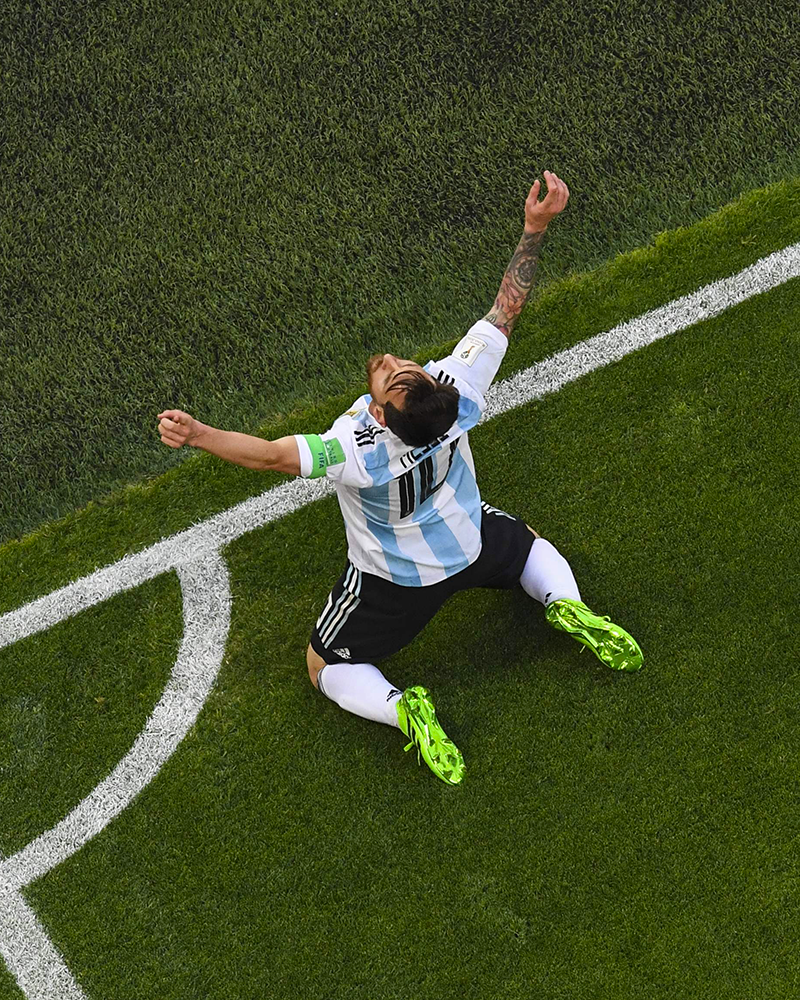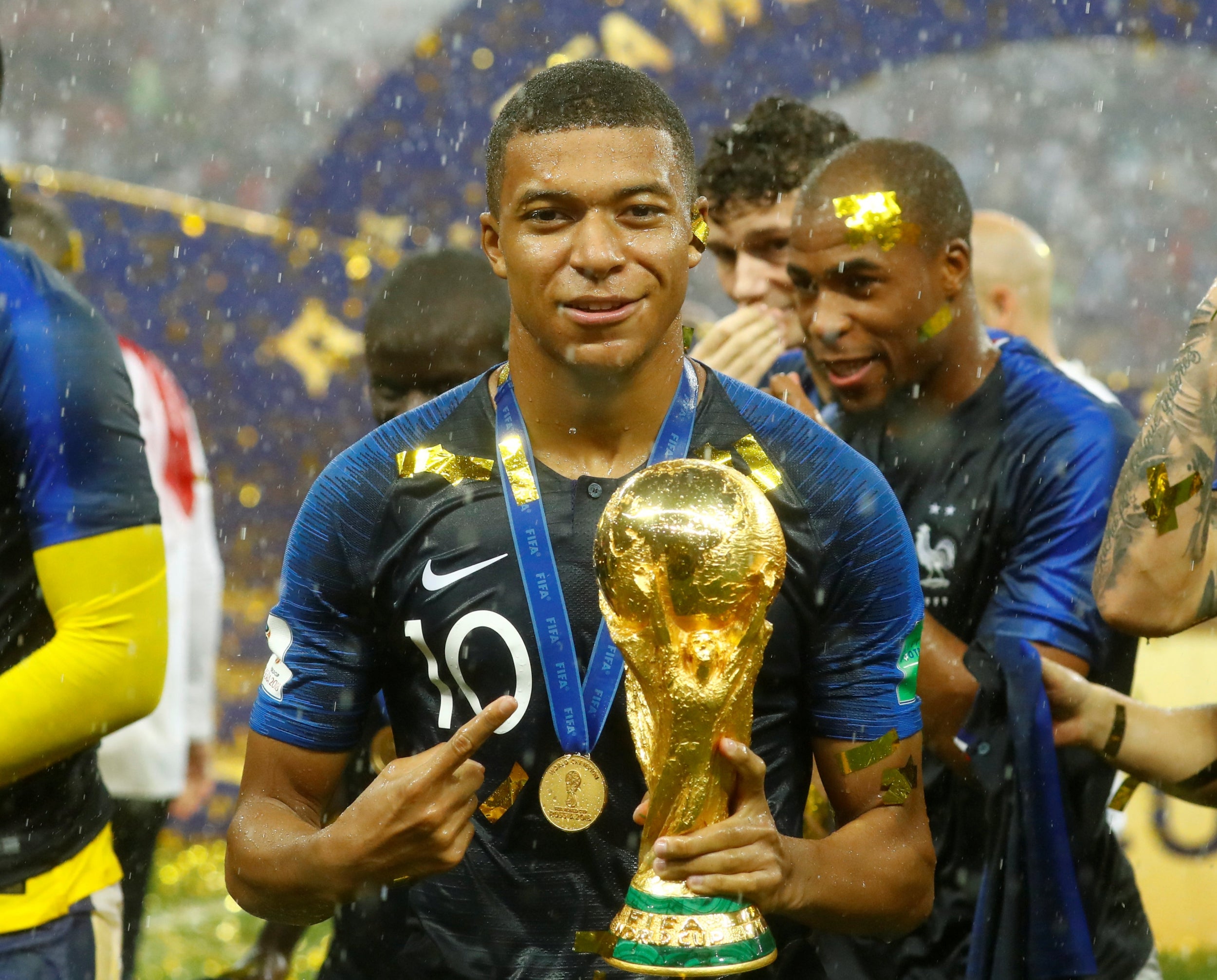For all the ills of the world, World Cup 2018 showed that a bit of football done right can make the planet smile
After an incredible month, Jonathan Liew looks back at a tournament that swept aside the world's problems and gave people something to be happy about for a while
Monday morning dawns with a grim and crushing inevitability. Unless you’re peeling yourself off a Paris pavement, or drowning your sorrows in a Dubrovnik dive bar, the 2018 World Cup is over. As a month of sporting hedonism slips from present tense to past, real life and its hard borders re-sharpen their focus, bringing with them a cruel reckoning. It was only football, after all.
It felt like more than that when Kylian Mbappe was burning through opposition defenders, or Lionel Messi was fighting back the tide, or Russia and South Korea were pulling off the unfeasible, or when England’s town squares throbbed with rasping songs and nervous tension and the prickly spines of a faint dream. But no: ultimately, it was only football, no more and no less.
And so a world on a comedown seeks meaning in its ecstasy. What did we learn? What, ultimately, was it all for? France were worthy champions, no doubt about that. Eleven goals in four knockout games and a second World Cup were no mean feat for a team cast ahead of the tournament as a ghost in a shell, a squad of illusory talents shackled by indecision and defensive tactics. Instead, they provided an object lesson in what happens when you persuade outstanding individuals to submit to a collective structure, when you wait patiently for the game to break and give away as little as possible. Every adversity they faced, they negotiated. They came through a monstrous draw: Argentina, Uruguay, Belgium, Croatia. Their triumph should brook no mitigation.
We should be wary, too, of assuming that European football’s big powers have cemented their grip on the competition. Yes, the last three World Cups have been won by France, Germany, Spain and Italy. But Croatia’s spectacular run to the final - and run is the operative word, given they barely stopped all month - should give pause for thought. A shambolic footballing infrastructure and the pall of institutional corruption proved no barrier to a team who cohered and believed and were prepared to back up their faith with guts and experience. They were closer to winning the final than history will remember.
Meanwhile, Belgium, Uruguay and Sweden all showed what can be possible with teamwork and a little momentum. Brazil played perhaps the best football in the tournament, only to be undone by half an hour of pure inspiration in Kazan. Teams like Japan, Colombia and Serbia will all return stronger in four years’ time. The likes of Italy, Holland, the United States and Ivory Coast will surely return to the ring in Qatar. A renewed focus on international football and the projected increase to 48 countries should give medium-sized teams a better shot. In time, Croatia may become not the exception, but the rule.
And then of course, we had England. Surfing a unique wave of high optimism and low expectations that will surely not be repeated for a generation, Gareth Southgate’s team carved a modest swathe through the easier half of the draw with an uncompromising cocktail of established method, iron resolve, set piece routines and their first penalty shoot-out victory in 22 years. This wasn’t their apogee, not by a long stretch. The ‘English disease’ still struck at key moments against Tunisia, Colombia and Croatia. But they have a likeable squad, a newly re-engaged public, a defined identity and youth teams that have been hoovering up silverware for the last few years. Think of this as the first step, not the last.
If England have a bright future ahead of them, then for the world’s two greatest footballers, the opposite is true. Messi and Cristiano Ronaldo exited the tournament within four dramatic hours of each other, their international futures uncertain, their legacies - whatever that means - still open to interpretation. They will be 35 and 37 by the time the next World Cup comes around, and so it is tempting to conclude that this was the last time we saw them both at their peak on their stage, were it not for the fact that neither got remotely close to their peak in Russia.

Oh, there were moments, of course: Messi’s geometry-defying goal against Nigeria, Ronaldo’s insouciant hat-trick against Spain. But after an era that has been shaped, warped, almost defined by these two great superheroes, perhaps this was the tournament when the idea of the star player single-handedly dragging his team over the finish line finally ran out of locomotion. Mo Salah, Robert Lewandowski and Neymar were all hotly tipped to grab the tournament by its lapels. But in their respective failures was a realisation that building a side around a single captivating individual is never the most lucrative strategy.
In any case, the next age will boast not two superstars but several. That was the other side of this World Cup: the anointment of a new generation of champions, players we always knew had potential but now began to deliver on it in a very serious way. If the 2010s was the decade of Messi and Ronaldo, then the 2020s will be the decade of Mbappe and Pogba, De Bruyne and Hazard, Torreira and Betancur, Stones and Pickford: men of enormous individual talent, but with a defined tactical role, rather than tactics in their own right.

The real team of the tournament, however, was Russia. And not simply Russia the playing XI, a limited but eager unit elevated to the quarter-finals on a diet of inexhaustible running and chasing that only barely passed the naked eye test, but Russia the country. The most expensive World Cup in history proved also to be the best-organised, with virtually no violence or unsavoury incidents, immaculate transport and stadium infrastructure, and a concerted charm offensive that you sensed was only partly confected for foreign eyes.
Russians seemed genuinely bewitched by the hordes of outsiders in their midst, dancing and singing and lining their cafes with flags and hope. A country that has always viewed the rest of the world vaguely askance was confronted with the vivid pageant of globalism, and didn’t entirely hate it. Our solidarity should remain, as strongly as ever, with those oppressed and harrassed by Russia’s odious government, and those threatened by its belligerence. But if these few weeks have brought us one micron closer together, then maybe it wasn’t an entirely wasted experience. Just because Vladimir Putin had a good tournament doesn’t mean everyone else had a bad one.
There’s always been evil and malfeasance in the world, there’s always been a darkness in men’s souls, and there always will be. The World Cup will always provide a platform for the opportunists and the demagogues, the kleptomaniacs and the carpetbaggers. It will - regrettably - continue to generate pollution and waste that breaks the heart and rots the planet. In four years’ time the circus moves on to Qatar, an egregious racist state that thinks nothing of frying migrant workers to death on the griddle pan of its own selfish prestige. We should, and we must, always remain vigilant.
But even at the very vortex of Fifa’s black hole of bullshit remains, perhaps, a kernel of unquestionable truth. Football does bring people together. Football does awaken our collective spirit like nothing else on earth. And in a troubled world, as long as there is a ball and a field and people to play and watch, the reservoir of human happiness will never quite run dry. It’s only football. But when it’s done right, what a gift it is.
Join our commenting forum
Join thought-provoking conversations, follow other Independent readers and see their replies
Comments
Bookmark popover
Removed from bookmarks